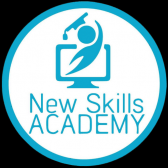Learning is the cornerstone of our lives. Most adults don’t realize that just about everything they do in their daily lives is based on what they learned as children.
While some skills we may learn from our parents and others in our personal lives, most are learned during our formative time in the school environment. After all, it’s where we spent most of our day as children. Our personal development was heavily influenced by what we learned. It shaped our behavior, our personalities, and our ability to handle different scenarios as adults.
So if you don’t notice your lessons from elementary school in your actions today, here are the areas of your life where you might want to take a closer look.
Life Skills
The critical thinking and decision-making skills we learn early on in primary school are used in our adult lives in every aspect. As young children, we learn these skills throughout many different academic lessons, whether it’s choosing which answer we think is best on a multiple-choice test or figuring out which column of numbers we should multiply first in a double-digit math problem. This translates into adult life in everyday circumstances, such as deciding which driving route best to take or which jobs we should apply to.
Money Management
Every time you’re in a store purchasing something, you’re using skills that you most likely learned in school. In various math classes throughout primary and secondary school, we learn how to add, subtract, multiply, and divide amounts of money. We learn financial literacy this way. Roleplaying scenarios where students pretend that they’re in a market buying or selling things is a typical activity in math classes around the world.
Step into the world of learning and personal growth with Centre of Excellence!
Relationships and Family
Relationships require communication, cooperation, compromising, active listening, and conflict-resolution skills. Each one of these skills can be found in many typical classroom activities, such as games or projects that involve working with other classmates. We learn how to maintain healthy relationships by interacting with peers and by doing so under the care of teachers, who often model what behavior is appropriate during these interactions.
Raising Children
Many high school health classes require students to take care of robotic baby simulator dolls as part of a lesson on parenting. But this isn’t the only way that students learn how to take care of children. By the time most students reach high school and are assigned this class, they already have some necessary skills for this built-in from their primary school health class such as knowing what foods are nutritious and how to avoid getting hurt.
Making Friends
During breaks and playtime in school, children interact with many others that they normally wouldn’t be exposed to while at home. They learn how to make friends with other children who have different personalities and varying familial and cultural backgrounds. This is how many of us learned how to make friends and how to integrate within larger groups of friends. We also learned how to use these groups to branch out and make new friends from mutually existing friends.
Allow us to introduce you to the ultimate destination for unparalleled online learning experiences, New Skills Academy!
Maintaining Health
We learn about health in many different ways in school. Both physical education (P.E.) and health classes are core classes in most grade-level schools. P.E. teaches us how to stay active and healthy with sports and exercise. Health class teaches us about eating healthy foods, weight management, safety, illness prevention, and first aid.
Doing Business
When a teacher encourages children to answer questions and commends them, this inspires motivation, initiative, and self-esteem. This type of character-building development takes place in all areas of academia. We learn leadership, collaboration, and communication skills during group tasks. Creativity is learned and inspired through activities such as art. Social studies lessons teach us about other cultures. All of this combines into the professional skill sets many of us will end up using in our adult careers.
Emotional Balance
Our emotions, while often affected by external factors, become more developed through learning. Although things in everyday life may affect our mood or feelings, we’re able to handle these changes better because of the emotional development we receive early on. It’s teachers who are often the first to show students how to react to disappointment, how to control emotions, and how to think positively.

Online Courses
Unlock the secrets to a harmonious existence with The Dream Oak. Discover the transformative power within you through our recommended online courses.
Importance Of Learning In Life
The Benefits Of Lifelong Learning: Why Continuous Education Matters
In today’s rapidly changing world, the importance of lifelong learning cannot be overstated. Continuous education empowers individuals to adapt and thrive in an ever-evolving society. Firstly, it enhances personal growth by broadening knowledge and skills and fostering critical thinking and problem-solving abilities. Lifelong learners are more likely to embrace new experiences and perspectives, leading to enhanced creativity and innovation. Secondly, continuous education promotes career advancement by enabling individuals to stay relevant in their fields or explore new career paths altogether.
With technological advancements disrupting traditional job markets, those who continually update their skill sets are better equipped for professional success. Lastly, lifelong learning improves overall well-being by boosting self-confidence and providing a sense of fulfillment through intellectual stimulation.
Step into the world of learning and personal growth with Centre of Excellence!
Unlocking Personal Growth And Development Through Learning
Learning is a powerful catalyst for personal growth and development. It acts as a key that unlocks the doors to new opportunities, deeper understanding, and self-improvement. By engaging in continuous learning, individuals can broaden their horizons, expand their knowledge base, and enhance their skills in various areas of life. Learning not only equips us with practical tools but also instills confidence and resilience, enabling us to adapt to ever-changing circumstances.
It encourages critical thinking, creativity, and problem-solving abilities while fostering a sense of curiosity that fuels personal growth. Moreover, learning provides a sense of accomplishment and fulfillment as we acquire new knowledge or master new skills. Ultimately, embracing lifelong learning empowers individuals to reach their full potential and live a fulfilling life.
Expanding Horizons: How Learning Enhances Cultural Understanding
Learning plays a pivotal role in fostering cultural understanding, as it allows individuals to broaden their horizons and embrace diverse perspectives. Through education, we gain insights into different customs, traditions, and belief systems that shape societies worldwide. By immersing ourselves in new knowledge and experiences, we develop empathy and appreciation for the richness of human diversity. Learning about other cultures enables us to break down stereotypes, challenge biases, and build bridges between communities.
It encourages us to celebrate our differences while finding common ground with others. Moreover, acquiring knowledge about various cultures enhances our ability to communicate effectively across borders and fosters mutual respect. Ultimately, learning helps us become global citizens who appreciate the value of cultural diversity in shaping a harmonious world.
The Competitive Edge: How Learning Boosts Career Opportunities
In today’s fast-paced and ever-evolving world, continuous learning has become crucial for individuals seeking career growth and advancement. The ability to acquire new knowledge and skills not only enhances personal development but also provides a significant competitive edge in the job market. Employers now value candidates who demonstrate a passion for learning, as it indicates adaptability, ambition, and innovation potential.
By actively pursuing opportunities to learn, whether through formal education or self-study, individuals can stay ahead of industry trends, acquire specialized expertise, and broaden their professional network. Moreover, ongoing learning cultivates critical thinking abilities and problem-solving skills necessary for tackling complex challenges in the workplace.
Lifelong Learning For A Healthier, Happier Life
In today’s fast-paced world, the importance of lifelong learning cannot be overstated. Engaging in continuous education and personal growth is key to leading a healthier and happier life. Lifelong learning offers numerous benefits that extend beyond acquiring knowledge or earning qualifications. Firstly, it keeps our minds active and agile, preventing cognitive decline as we age. By challenging ourselves with new ideas and concepts, we enhance our problem-solving skills and critical thinking abilities.
Secondly, lifelong learning fosters personal development by expanding our horizons and encouraging self-discovery. It opens doors to new interests, hobbies, and passions that bring joy and fulfillment to our lives. Lastly, it promotes adaptability in an ever-changing world.
Advantages Of Online Courses
Flexibility And Convenience
One of the main advantages of online courses is the flexibility they offer. Unlike traditional classroom settings, online courses allow students to create their study schedules. This means that individuals with busy schedules can easily fit their coursework around other commitments such as work or family responsibilities. Moreover, online courses eliminate the need for commuting to a physical location, saving students both time and money.
Additionally, online courses provide convenience in terms of accessibility. With just a computer and internet connection, learners can access course materials from anywhere in the world at any time. This makes education more accessible for individuals who may live in remote areas or have limited mobility. Furthermore, online courses often provide self-paced learning options. Students can progress through the material at their speed, allowing them to spend more time on challenging topics or breeze through familiar ones.
This personalized approach enhances learning outcomes and student satisfaction.
Allow us to introduce you to the ultimate destination for unparalleled online learning experiences, New Skills Academy!
Wide Range Of Course Options
Online courses offer a wide range of options, allowing students to access a diverse selection of subjects and disciplines. Unlike traditional brick-and-mortar institutions, online platforms are not constrained by physical space limitations, enabling them to offer an extensive catalog of courses. Whether you are interested in expanding your knowledge in a specific field or exploring new areas of study, online courses provide countless opportunities for personal and professional growth.
Furthermore, the wide range of course options caters to individuals with different learning styles and preferences. Online platforms often offer various formats, including video lectures, interactive modules, and downloadable resources. This flexibility allows students to choose the learning style that best suits their needs and maximizes their understanding of the subject matter. In addition to subject diversity, online courses also provide access to renowned instructors from around the world.
Students can learn from experts in their respective fields who may not be available at local educational institutions.
Cost-Effectiveness
One of the major advantages of online courses is their cost-effectiveness. Unlike traditional classroom-based education, online courses eliminate the need for commuting or relocating, resulting in significant savings on transportation and accommodation expenses. Additionally, students can avoid other costs associated with attending physical classes, such as purchasing textbooks or course materials, as many online courses provide digital resources at no extra cost.
Moreover, online courses often have lower tuition fees compared to their offline counterparts. This affordability opens up educational opportunities for individuals who may not have been able to pursue higher education otherwise due to financial constraints. Furthermore, online learners can save money by customizing their learning experience and selecting only the courses that are relevant to their specific needs and interests.
Overall, the cost-effectiveness of online courses makes them an attractive option for a wide range of learners seeking quality education without breaking the bank.
Enhanced Learning Experience
One of the significant advantages of online courses is the enhanced learning experience they offer. Unlike traditional classroom settings, online courses enable students to access a wide range of multimedia resources and interactive tools that can greatly enhance their understanding and engagement with the subject matter. Online platforms often provide students with access to virtual libraries, e-books, videos, and audio recordings that supplement their learning materials.
These resources allow learners to delve deeper into a topic and explore different perspectives at their own pace. Additionally, interactive features like discussion forums, chat rooms, and video conferencing facilitate meaningful interactions with instructors and fellow students from diverse backgrounds. Furthermore, online courses often employ innovative teaching methods such as gamification techniques or simulations that simulate real-life scenarios. These immersive experiences not only make learning more enjoyable but also provide practical skills development.
The Dream Oak
Body, Mind, And Soul For A Fulfilled Life!








